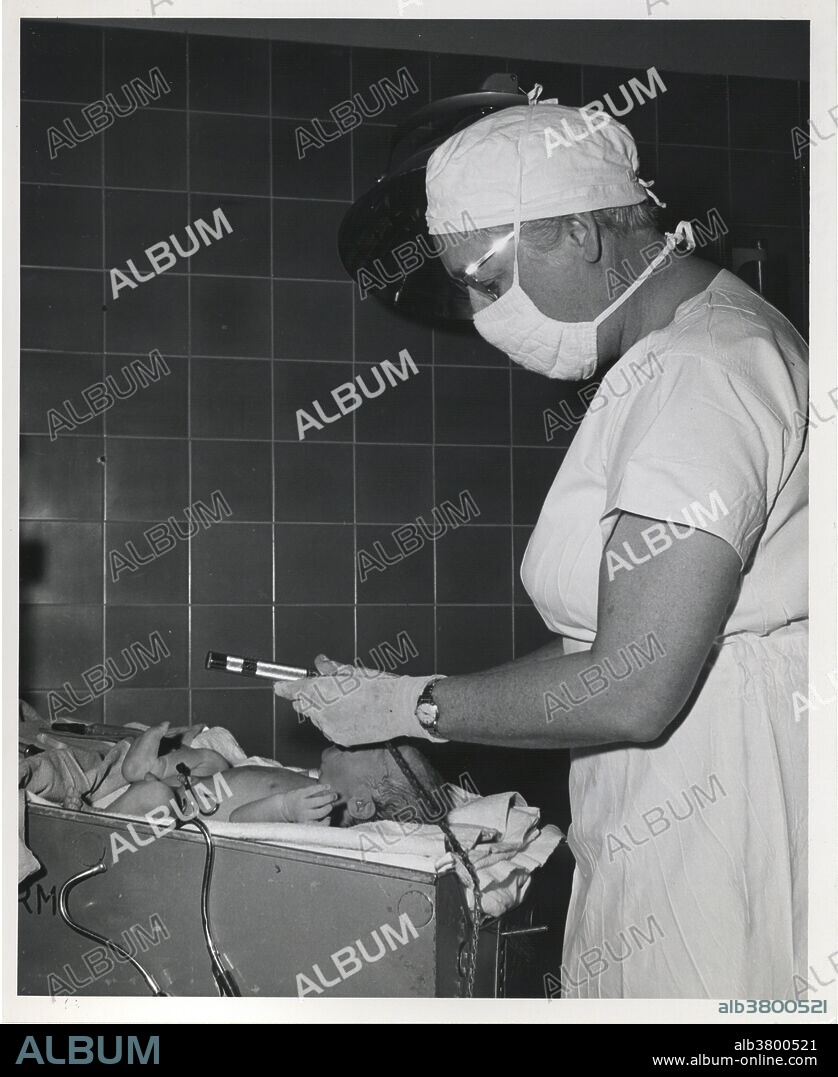alb3800521
Virginia Apgar, American Neonatologist

|
Add to another lightbox |
|
Add to another lightbox |



Buy this image.
Select the use:

Title:
Virginia Apgar, American Neonatologist
Caption:
Virginia Apgar (June 7, 1909 - August 7, 1974) was an American pediatric anesthesiologist. She was a leader in the fields of anesthesiology and teratology, and effectively founded the field of neonatology. In 1949, Apgar became the first woman to become a full professor at Columbia University College of Physicians and Surgeons (CUCPS) while she also did clinical and research work at the affiliated Sloane Hospital for Women. In 1959, she earned a Master of Public Health degree from the Johns Hopkins School of Hygiene and Public Health. In 1953, she introduced the first test, called the Apgar score, to assess the health of newborn babies. The Apgar test is typically administered one minute to five minutes after birth. During the rubella pandemic of 1964-65, Apgar became an outspoken advocate for universal vaccination to prevent mother-to-child transmission of rubella. From 1959 until her death in 1974, Apgar worked for the March of Dimes Foundation, serving as vice president for Medical Affairs and directing its research program to prevent and treat birth defects. While Apgar was frequently the first or only woman in a department to serve in a position or win an accolade, she avoided the organized women's movement, proclaiming that "women are liberated from the time they leave the womb". She never married, and died in 1974 at the age of 65.
Category:
black & white • Science: Personalities
Credit:
Album / Science Source / National Library of Medicine
Releases:
Image size:
4872 x 5952 px | 83.0 MB
Print size:
41.2 x 50.4 cm | 16.2 x 19.8 in (300 dpi)
Keywords:
1909 • 1974 • 20 20TH XX XXTH TWENTIETH CENTURY • 20 XX TWENTIETH CENTURY • 20TH CENTURY • 20TH • AMERICA • AMERICAN • ANESTHESIOLOGIST • ANESTHESIOLOGY • APGAR SCORE • APGAR TEST • APGAR • BLACK & WHITE • BW • CELEBRITIES • CELEBRITY • FAMOUS PEOPLE • FAMOUS • FEMALE • FIGURE • HISTORIC • HISTORICAL • HISTORY • IMPORTANT • MARCH OF DIMES • MEDICAL • MEDICINAL • MEDICINE • MIDWIFERY • NEONATOLOGIST • NEONATOLOGY • NOTABLE • OBSTETRICS • PEDIATRIC ANESTHESIOLOGIST • PEDIATRIC ANESTHESIOLOGY • PEOPLE • PERSON • PERSONALITIES • PERSONALITY • PHOTO • PHOTOGRAPH • PORTAIT • PORTRAIT • POTRAIT • PUBLIC HEALTH ADVOCATE • PUBLIC HEALTH • SCIENCE • SCIENCE: PERSONALITIES • TERATOLOGIST • TERATOLOGY • TWENTIETH CENTURY • UNITED STATES • US • USA • V. APGAR • VIRGINIA APGAR • WELL-KNOWN • WOMAN • WOMEN
 Pinterest
Pinterest Twitter
Twitter Facebook
Facebook Copy link
Copy link Email
Email
